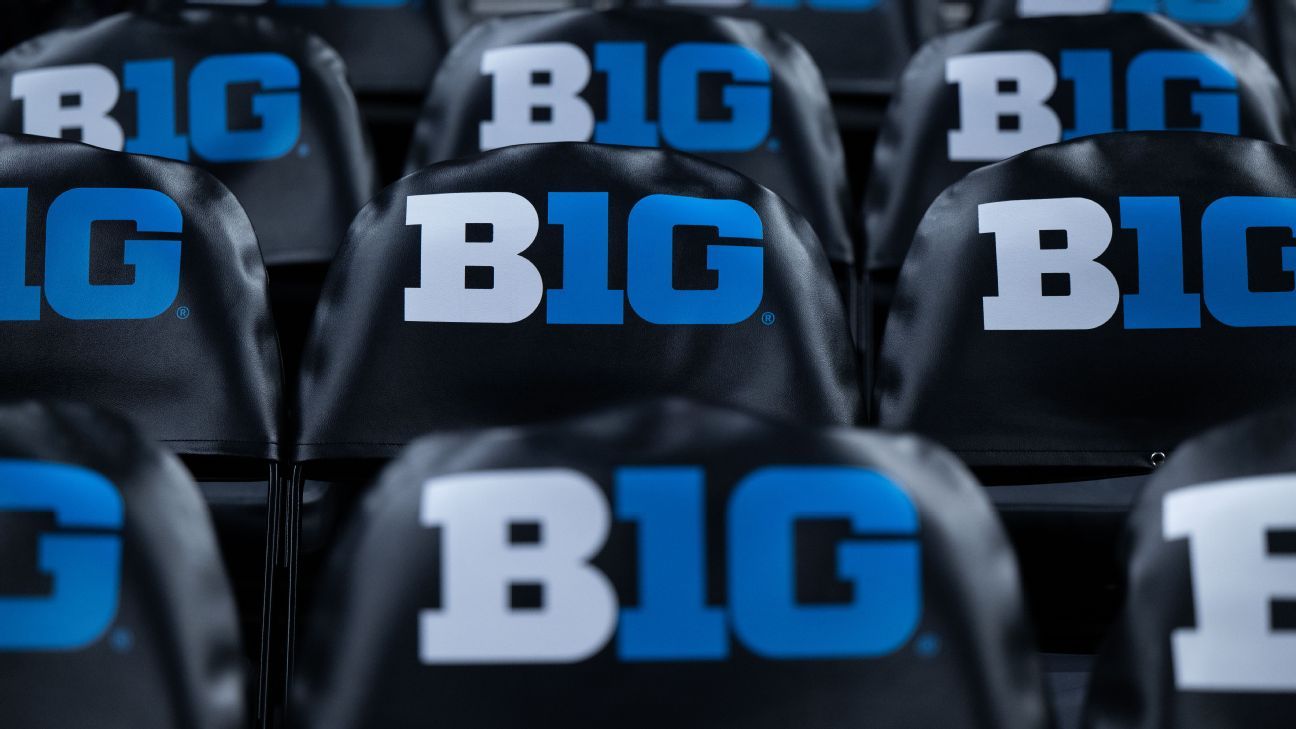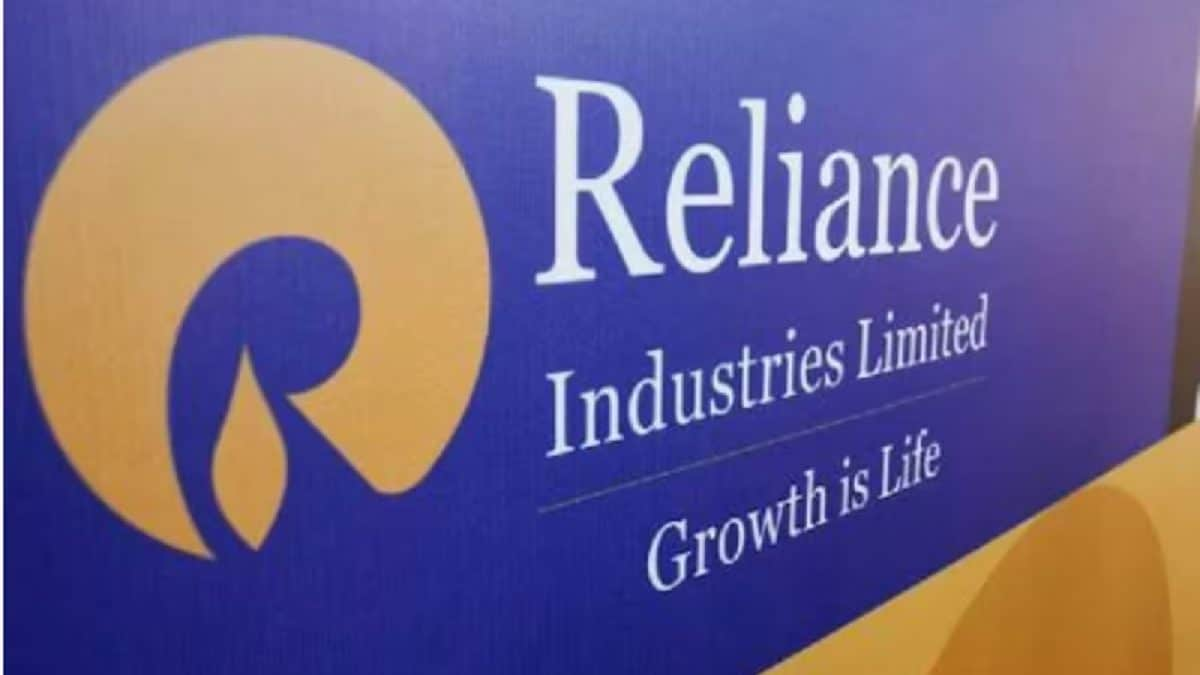Sports
Senator warns Big Ten of private equity risks

Sen. Maria Cantwell, D-Wash., sent a letter to Big Ten presidents Friday, warning that a move into private equity could have negative consequences, including impacting the schools’ tax-exempt status.
“The primary goal of these companies is to make money for the firm, which is unlikely to align with the academic goals of your university or its obligations as a not-for-profit organization,” Cantwell said.
The Big Ten has been exploring a partnership with private equity firms, with reports saying it could be looking at a $2 billion investment that would involve placing the sale of its media rights and other assets under a new entity partially owned by the equity investors.
Big Ten commissioner Tony Petitti was short on specifics at the conference’s basketball media days this week.
“Whether or not we need strategic investment to help us, we’ll determine,” he said. “It will be done by all 18 leaders. I think it’s no different than looking at the other buckets that we have to maximize resources. Just one other avenue that may or may not be available to us.”
Cantwell, the ranking member of the Senate Commerce Committee whose state has a Big Ten school, said in her letter she had been told that not all regents and trustees in the conference had been fully briefed on the deal.
“It is unclear from my conversations with these regents and trustees whether the athletic-focused Conference has fully considered the potential impact of the deal on your university and its overall educational mission,” she wrote.
Her letter comes a day after the senator spoke at a Knight Commission seminar that looked into the changes occurring in college sports, which settled a long-running lawsuit that now allows schools to pay players for their name, image and likeness.
Cantwell spoke in favor of her recently introduced SAFE Act, which proposes rewriting a 1961 law that would make it legal for conferences to pool their TV rights. She was followed at the event by Texas Tech regent chair Cody Campbell, who is a proponent of changes to the law and who blasted the Big Ten idea of looking into private equity.
“The fact that we’re bringing private equity into something that is, in my view, owned by the American public in college sports, is outlandish,” Campbell said.
Campbell estimates pooling of TV rights could bring an additional $7 billion to schools — a figure he did not back with any data and that conference commissioners disagree with.
“I have never stated — publicly or privately — that pooling media rights would increase revenue, nor do I believe that it would,” the Southeastern Conference’s Greg Sankey said.
Among the issues involved in pooling TV rights is that each conference has an assortment of deals with different expiration dates, which would make it hard to sync the deals and bring them under one umbrella.
Petitti acknowledged a private equity move for the Big Ten could create the same challenges.
“If we’re going to do something different, we’re going to respect everything we’ve set up in our current deals,” Petitti said. “There’s nothing being contemplated that would change anything in our current media relationships.”
One Michigan regent, Jordan Acker, recently posted on social media that “selling off Michigan’s precious public university assets would betray our responsibility to students and taxpayers.”
In her letter, Cantwell was blunt in outlining the stakes a private equity investment could have.
“Your university’s media revenues currently are not taxed because they are considered ‘substantially related to’ your tax-exempt purpose,” she wrote. “However, when a private, for-profit investor holds a stake in those revenues it raises questions whether the revenue loses its connection to your institution’s educational purpose.”
Sports
College football is chaotic, messy — and more popular than ever
Amid the wild west of NIL money and transfers, college football is attracting viewership unmatched in its history.
Source link
Sports
Patrick Mahomes says he has to be held back from pushing so hard in injury rehab, shares hopes for Week 1

NEWYou can now listen to Fox News articles!
Patrick Mahomes said Thursday the doctors have been holding him back a bit in his rehab because he’s been pushing hard as he recovers from the knee injury he suffered late in the season.
The Kansas City Chiefs quarterback set a hopeful timeline for when he’ll be ready to go as he addressed reporters while he continues to work on getting back to full strength.
CLICK HERE FOR MORE SPORTS COVERAGE ON FOXNEWS.COM
Kansas City Chiefs quarterback Patrick Mahomes (15) throws a pass during the second half against the Los Angeles Chargers at GEHA Field at Arrowhead Stadium on Dec. 14, 2025. (Jay Biggerstaff/Imagn Images)
“First off, rehab is going great so far. I’ve been hitting all the checkpoints that the doctor wants you to do and getting the strength and the range of mobility back,” Mahomes said. “So, that’s been going great. I’ve been doing all of it here in Kansas City so far. (Assistant athletic trainer) Julie (Frymyer) has been crushing it, pushing me. The doctor kind of gives you goals to get to, and I just try to maximize those, and they hold me back because I always want to go a little bit further. It’s been going great.
“I think the long-term I want to be ready for Week 1. The doctor says that I could be, but I can’t predict what’s going to happen throughout the process but that’s my goal, so I’ll try to prepare myself to be ready to play in that Week 1 and have no restrictions. You want to be out there healthy and giving us the best chance to win. Obviously, I hope to be able to do some stuff in OTAs and get to training camp and hopefully be able to do a lot there. I’m excited for the process. It’s a long process, but I’m excited for it.”
Mahomes had 3,587 passing yards and 22 touchdowns in 14 games during the year, but Kansas City’s season was a bit unusual.

Patrick Mahomes watches the action from a suite during the third quarter at GEHA Field at Arrowhead Stadium on Dec. 25, 2025. (Jay Biggerstaff/Imagn Images)
FOX SUPER 6 CONTEST: CHRIS ‘THE BEAR’ FALLICA’S NFL DIVISIONAL ROUND PREDICTIONS
The one-score games they won in 2024, which helped them to a Super Bowl appearance, turned out to be defeats in 2025. Too many dropped passes and other silly mistakes cost the team multiple times.
“I think just compounding mistakes,” Mahomes said when asked what went wrong in 2025. “You make mistakes throughout a game. For myself, I look at some of the red zone interceptions I threw in kind of bigger moments in the third and fourth quarter of games. That’s stuff that I haven’t done in the past, and so speaking for myself, just trying to be better in those moments. I think offensively we weren’t consistent enough throughout games. We had stretches in games where we played good, we had stretches in the season where we played really good.
“We’ve got to be better and that starts with me and then it kind of has to feed throughout the entire offense. So, I think like I said, guys are motivated, coaches, players, we’re all motivated to be better this next year. Like I said, it sucks watching these games. I want to be out there playing football, especially this time of year, it’s the best time of year to play football. It’ll give us the motivation, hopefully, for us to come back stronger next year.”

Kansas City Chiefs quarterback Patrick Mahomes (15) lowers his head during the fourth quarter against the Houston Texans at GEHA Field at Arrowhead Stadium on Dec. 7, 2025. (Denny Medley/Imagn Images)
CLICK HERE TO DOWNLOAD THE FOX NEWS APP
The Chiefs finished 6-11 and missed the playoffs for the first time since the 2014 season.
Follow Fox News Digital’s sports coverage on X and subscribe to the Fox News Sports Huddle newsletter.
Sports
Bird droppings halt India Open match twice

Play at the India Open badminton tournament was halted twice on Thursday after bird droppings were spotted on Court 1 during Indian HS Prannoy’s match against Singapore’s Loh Kean Yew, Indian media reported.
The incident kept the spotlight on conditions at the Indira Gandhi Indoor Stadium for a third straight day and added to questions over the venue’s preparedness for the World Championships in August.
Play was first stopped in the opening game when officials rushed in with tissues to clean the floor, and was halted again in the third after fresh droppings were spotted.
“I think it was bird poop,” Prannoy said after the match.
The disruption followed other incidents reported at the venue in recent days, including birds flying around on the practice courts and a monkey being seen in the stands.
While the Badminton Association of India (BAI) has defended the conditions and arrangements so far, Indian media said Thursday’s episode adds to a growing list of embarrassments for organisers and points of review for the Badminton World Federation (BWF), which is monitoring the venue.
Players have also raised concerns over the city’s pollution and weather conditions, with Loh adding to the issues flagged during the tournament.
Earlier this week, Danish player Blichfeldt raised concerns about what she described as “dirty and unhealthy” conditions, calling on the BWF to intervene, a significant allegation given the same venue will host the World Championships scheduled to be held in August, with India set to host the global showpiece for the first time in 16 years.
Last year’s India Open was held at the smaller KD Jadhav Arena before being moved this season to the larger Indira Gandhi Stadium, while training sessions continue to take place at the KD Jadhav Stadium located around 250-300 metres from the main arena.
Blichfeldt had reiterated her concerns this week, specifically referring to the warm-up halls, saying players were forced to wear multiple layers due to cold conditions and describing the environment as unfit for elite preparation.
She also raised health concerns after claiming to have seen birds inside the warm-up area, including instances of droppings on court surfaces.
“That’s clearly unhealthy and not normal,” she said, adding that falling sick or getting injured due to such conditions would be unfair to players.
While acknowledging organisers’ efforts, she maintained improvements were still needed and urged tournament authorities and the BWF to ensure professional standards are met.
-

 Politics1 week ago
Politics1 week agoUK says provided assistance in US-led tanker seizure
-

 Entertainment1 week ago
Entertainment1 week agoDoes new US food pyramid put too much steak on your plate?
-

 Entertainment1 week ago
Entertainment1 week agoWhy did Nick Reiner’s lawyer Alan Jackson withdraw from case?
-

 Sports6 days ago
Sports6 days agoClock is ticking for Frank at Spurs, with dwindling evidence he deserves extra time
-

 Business1 week ago
Business1 week agoTrump moves to ban home purchases by institutional investors
-

 Sports1 week ago
Sports1 week agoPGA of America CEO steps down after one year to take care of mother and mother-in-law
-

 Tech4 days ago
Tech4 days agoNew Proposed Legislation Would Let Self-Driving Cars Operate in New York State
-
Sports7 days ago
Commanders go young, promote David Blough to be offensive coordinator






